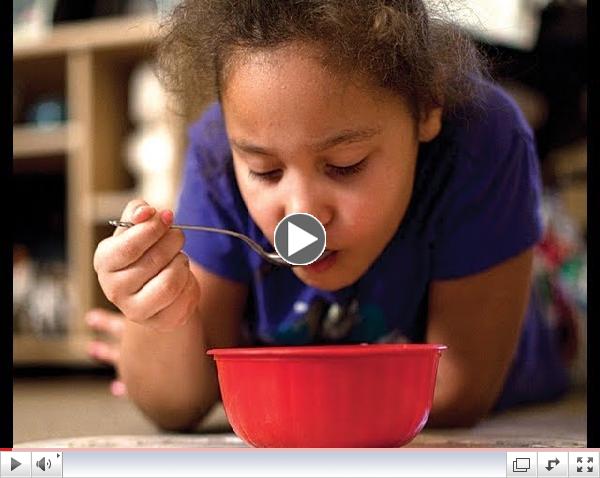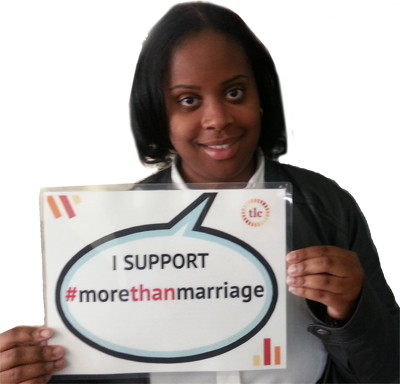Receive MFSA updates
|  |
|
|
|
Volume VIII Issue 12
|
19 May 2013
|
|
Greetings!
What I have begun to affectionately call "Methodist Pride Season" has started. May and June are when Annual Conferences of The United Methodist Church typically meet to engage in Holy Conferencing. So far, I've been to Baltimore-Washington, Mississippi, and New England (Virginia is this weekend). Other MFSA Staff have been to Northern Illinois, Illinois Great Rivers, New York, West Michigan, Upper New York, and Iowa. Great MFSA gatherings have happened even without MFSA staff present - it's been a season of fruitful conversation, education, and action. Annual Conference isn't always easy. Many conferences didn't have ample time to deal with social holiness-related legislation. (Was yours one of them? Let us know by taking this quick survey!) Some Annual Conferences engaged acts of homophobia and heterosexism. Some spent thousands of dollars to meet in hotel ballrooms and large conferences centers without recognizing the working poor in their midst. Thank God for the working of the Holy Spirit, because in some parts of  the Church, change began to happen. At least 4 Annual Conference's voted to divest conference funds from the illegal Israeli occupation of Palestine - or direct the General Board of Pension and Health Benefits to do so - and 2 others voted to create a task force! The Mississippi Annual Conference voted their encouragement to abolish the death penalty in Mississippi. The Florida MFSA Dinner heard from the prophetic Dr. Peter Storey. And in the North Carolina Conference, legislation passed to implore General Conference to change the language of the Discipline towards lesbian, gay, bisexual, and transgender persons. As we celebrate the work of The United Methodist Church during this "Methodist Pride Season," let us not forget that the work of Christ's healing, hope, and justice continue throughout the year. It makes me want to sing "And are we yet alive?" every day between now and when we gather next.
Grace and peace,

Chett Pritchett
Interim Executive Director |
 TAKE ACTION: Reproductive Justice and Farm Bill TAKE ACTION: Reproductive Justice and Farm Bill
|
The United States Congress is gearing up for some discussion on major issues affecting a progressive vision.
This week the House of Representatives passed the District of Columbia Pain-Capable Unborn Child Protection Act. This far-reaching act would prohibit termination of pregnancy if the probable post-fertilization age of the unborn child is 20 weeks or greater, except where necessary to save the life of a pregnant woman whose life is endangered by a physical disorder, illness, or injury, excluding psychological or emotional conditions. This means that in instances of rape or incest, termination of pregnancy cannot be obtained in a safe and legal manner, and that a woman's psychological, emotional, or spiritual health cannot be a factor for termination of pregnancy. By a vote of 228-196, the US House of Representatives declared that women cannot be trusted to make moral, responsible decisions for themselves.
 TAKE ACTION: Contact BOTH of your Senators. Hand write a letter TODAY and let them know you are a person of faith who believes in a woman's ability make moral, responsible decisions for herself and that access to reproductive health care should be available, safe, and legal. TAKE ACTION: Contact BOTH of your Senators. Hand write a letter TODAY and let them know you are a person of faith who believes in a woman's ability make moral, responsible decisions for herself and that access to reproductive health care should be available, safe, and legal.
The Federal Agriculture Reform and Risk Management Act of 2013 (commonly known as the Farm Bill) is working its way through the House of Representatives. Central to the Farm Bill is the Supplemental Nutrition Assistance Program (SNAP), also known as Food Stamps.
The current economic climate in the United States and the stated  intention of both political parties to reduce federal spending for the future could mean cuts to SNAP. Indeed, a draft version of the Agricultural Committee's proposed Farm Bill trimmed $4 billion from SNAP by eliminating automatic enrollment for those who qualify for energy benefits. This poses a serious risk to the program, especially at a time when SNAP has record rates of enrollment, skyrocketing to 45.8 million people as of August 2011. Cutting SNAP now while the economy continues to struggle could lead to more malnourished children and send more families into poverty. intention of both political parties to reduce federal spending for the future could mean cuts to SNAP. Indeed, a draft version of the Agricultural Committee's proposed Farm Bill trimmed $4 billion from SNAP by eliminating automatic enrollment for those who qualify for energy benefits. This poses a serious risk to the program, especially at a time when SNAP has record rates of enrollment, skyrocketing to 45.8 million people as of August 2011. Cutting SNAP now while the economy continues to struggle could lead to more malnourished children and send more families into poverty.
 | | Barbie's Story. From "A Place at the Table" |
TAKE ACTION: Call or email your Congressional representatives and let them know that, as a United Methodist, you ask them to protect SNAP benefits to families in poverty and that Jesus calls us to stand up for the poor and hungry. |
Marriage Equality and Beyond
|
Within the next few days, the Supreme Court of the United States (SCOTUS) will be announcing decisions regarding Proposition 8 and the Defense of Marriage Act. Follow MFSA's Facebook and Twitter accounts for up-to-date information. Also, check out "Decision Day" events in your local area by checking out this map - and if you want to sponsor an event you can advertise using that map and website! Likely, the decisions will be handed down on Monday, June 24.
Even as we prepare for "Decision Day," it is important to remember that LGBTQ justice doesn't begin or end with marriage. Bullying, anti-gay violence, and heterosexism still exist in our communities and schools, our governmental policies and practices, and yes, even in our churches.
Tyler Schwaller, a doctoral candidate at Harvard Divinity School, blogged for MFSA recently, stating the, "present iteration of marriage equality still creates and sustains its own sets of exclusions. Some relationships are still privileged over others, with significant implications for access to health care and an array of other economic, social, and religious benefits."
 The Transgender Law Center in San Francisco has developed a way to increase conversation about the intersectionality of justice issues. #morethanmarriage is a community-based campaign to amplify the voices of our community and raise awareness of the critical issues we need to address in order to thrive - including marriage, immigration, bullying, health care access, family rights, employment, and more. The Transgender Law Center in San Francisco has developed a way to increase conversation about the intersectionality of justice issues. #morethanmarriage is a community-based campaign to amplify the voices of our community and raise awareness of the critical issues we need to address in order to thrive - including marriage, immigration, bullying, health care access, family rights, employment, and more.
|
Opportunities: Restoration Generation and Mission U
|
The United Methodist Church has presented two great opportunities for discipleship: Restoration Generation and Mission U.
Restoration Generation began as a conversation among young adult leaders in the Northeast United States to discern how they could better support, strengthen and empower one another in ministry. While that conversation continues, the main action step that has emerged this year in response to events in the region is the Restoration Generation service initiative. The goal of this initiative is to recruit, equip and engage young people in the Hurricane Sandy recovery process in the Northeast United States. Restoration Generation seeks to engage in the physical restoration of the region, and as a result promote spiritual restoration, connection, community and hope.
Come to Washington, DC in August and participate in Oasis 2013!
 Formerly known as the School of Christian Mission, Mission U is a great way to learn more about issues of justice and compassion within your Annual Conference. This year studies include The Roma of Europe, Poverty, and Living Sacramentally and Walking Justly (written by former MFSA Executive Director, George D. McClain - George will even be leading some of the courses!). To find a Mission U in your Annual Conference, check out this map. |
 Progressive Ponderings Progressive Ponderings
|
Justice in the News
Job Postings
|
 Social Media Corner Social Media Corner
|
Sometimes the best tip about social media is this: allow for it. Read this blog by Episcopal priest (and former United Methodist!), Joseph P. Peters-Matthews regarding access to social media for parishoners and workshop attendees. Social media doesn't make us dumber. In fact, it does the opposite - it makes us work harder and faster and better to be as factual as possible. So instead of being afraid of social media, embrace it - and continuously ask questions. Do you tweet during Sunday sermons? Or during workshops? Do you photograph the congregation on Sunday morning? Does your ministry setting have a communications committee or social media policy? |
|
|
|
|
|
|